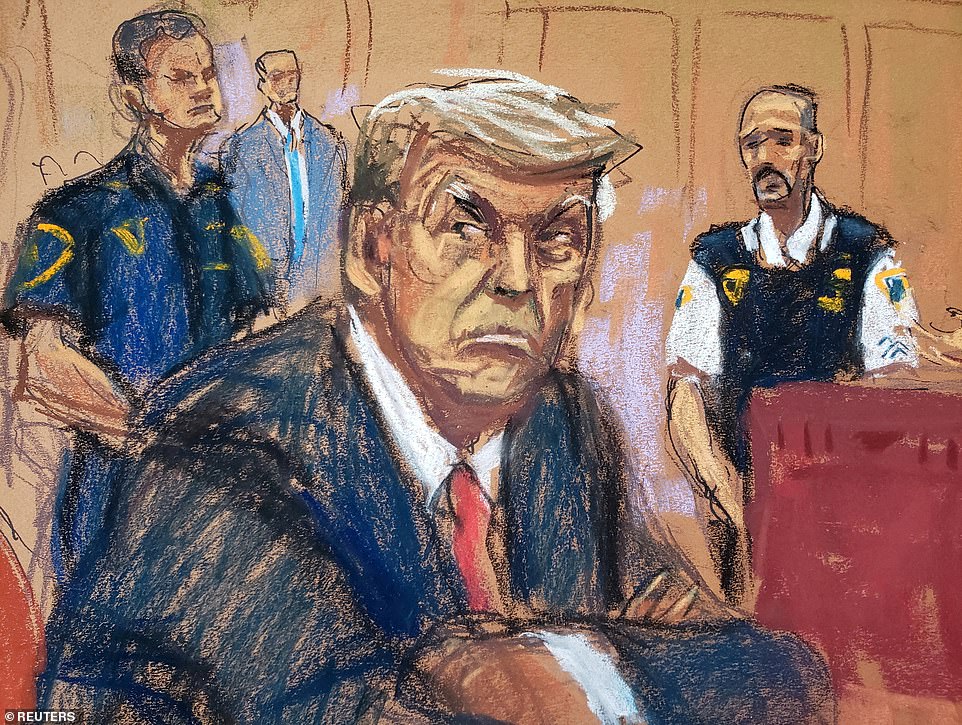The Role Of Multiple Affairs And Sexual Misconduct Accusations In Donald Trump's Election

Table of Contents
The Nature and Volume of Accusations
Types of Allegations
The allegations against Donald Trump encompass a wide range of behaviors, including sexual harassment, assault, and adultery. These accusations span several decades and involve multiple accusers. The seriousness and nature of the claims vary considerably.
- Sexual Harassment: Numerous women have come forward with allegations of unwanted sexual advances and inappropriate comments from Trump. These accounts often detail incidents occurring in professional settings.
- Sexual Assault: Several women have accused Trump of sexual assault, including unwanted touching and forceful kissing. These allegations are particularly serious, carrying significant legal and ethical implications.
- Adultery: Numerous reports and accounts detail Trump's alleged extramarital affairs throughout his life. These reports, while not directly related to sexual misconduct in a legal sense, contribute to the overall picture of his personal conduct.
Sources for these allegations include news articles from major publications like The New York Times, The Washington Post, and The Guardian, as well as lawsuits filed against Trump and testimonies provided by various individuals. These reports of infidelity, allegations of sexual assault, and claims of sexual harassment paint a complex picture of Trump's past relationships.
Public Response and Media Coverage
The media coverage of these allegations varied significantly across different news outlets. Some extensively reported on the accusations, while others provided less detailed coverage or focused on other aspects of the campaign. Social media played a significant role in disseminating information, with hashtags like #TrumpTape and #BelieveWomen gaining traction during various points of the campaign. Public opinion on sexual misconduct allegations was clearly divided along partisan lines, with some dismissing the accusations as politically motivated attacks. Analyzing media coverage of Trump's scandals reveals a complex interplay of journalistic ethics, political biases, and public perception.
The Impact on Trump's Campaign
Strategic Responses
Trump's campaign employed various strategies to respond to the accusations. These included outright denial, aggressive counter-attacks against accusers, and attempts to deflect attention to other issues.
- Denial: Trump consistently denied the accusations, often labeling them as "false" or "fabricated."
- Counter-Attacks: He frequently attacked the credibility of his accusers, questioning their motives and suggesting they were politically motivated.
- Deflection: The campaign frequently shifted the focus to other issues, such as Hillary Clinton's emails or the economy.
The effectiveness of these responses is debatable. While some supporters remained loyal despite the accusations, others may have been alienated. The role of his campaign team in managing this crisis was crucial, attempting damage control through carefully orchestrated media appearances and statements. Understanding Trump's campaign strategy surrounding these allegations offers insight into crisis management in a highly polarized political environment.
Effect on Voter Support
Determining the precise impact of the accusations on voter support is challenging. While some polling data suggested a negative effect, other factors, such as economic anxieties and political polarization, likely played a more significant role. Exit polls and analyses of voter behavior suggest that many voters who supported Trump prioritized other issues over the allegations of sexual misconduct. This suggests that the impact of these allegations varied significantly across different demographic groups. Analyzing voter reaction to Trump's scandals reveals the complex interplay of factors influencing electoral choices.
The Broader Context
The Role of Political Polarization
Political polarization significantly influenced the impact of the allegations. Many supporters dismissed the accusations as politically motivated attacks designed to undermine Trump's candidacy. Conversely, opponents viewed the accusations as evidence of his unsuitability for office. Partisan media outlets often reinforced these pre-existing viewpoints, contributing to the highly divisive nature of the debate. Understanding the role of political polarization in shaping public opinion is crucial to analyzing the impact of these allegations on the 2016 election.
Comparison to Other Candidates
While accusations of sexual misconduct have been leveled against candidates in past elections, the scale and nature of the allegations against Trump were unique. The sheer volume of accusations, coupled with Trump's often combative responses, distinguished his situation from many previous instances. Comparing Trump's case to similar situations helps illuminate the evolving dynamics of political scandals and their impact on electoral outcomes. A comparative analysis of scandals across different elections reveals evolving societal norms and standards surrounding such accusations.
Conclusion
The role of multiple affairs and sexual misconduct accusations in Donald Trump's election remains a complex and highly debated topic. While some evidence suggests a negative impact, it's difficult to definitively quantify the extent of this effect. The influence of political polarization, the strategic responses of the Trump campaign, and the overall political climate significantly shaped the way these accusations were received and processed by voters. Understanding the role of affairs and sexual misconduct accusations in the 2016 election requires a nuanced examination of multiple factors and perspectives. Further research and discussion are vital to fully grasping this significant aspect of the 2016 election and its implications for future political campaigns. Understanding the impact of affairs and sexual misconduct accusations on political campaigns remains crucial for analyzing the evolving dynamics of modern political discourse.

Featured Posts
-
 Josh Harts Historic Triple Double Season A New Knicks Record
May 17, 2025
Josh Harts Historic Triple Double Season A New Knicks Record
May 17, 2025 -
 Best Bitcoin And Crypto Casinos Your 2025 Gambling Guide
May 17, 2025
Best Bitcoin And Crypto Casinos Your 2025 Gambling Guide
May 17, 2025 -
 Bayern Munich Academy Angelo Stillers Rise And Underlying Problems
May 17, 2025
Bayern Munich Academy Angelo Stillers Rise And Underlying Problems
May 17, 2025 -
 New Uber Shuttle Service 5 Rides From United Center
May 17, 2025
New Uber Shuttle Service 5 Rides From United Center
May 17, 2025 -
 El Fraude De Koriun Inversiones Analisis Del Esquema Ponzi
May 17, 2025
El Fraude De Koriun Inversiones Analisis Del Esquema Ponzi
May 17, 2025
